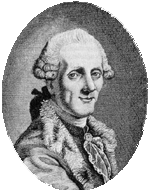

Italian composer. From 1742 to 1754 he studied with Leo and then Durante at the S. Onofrio Conservatory in Naples. He then embarked on a successful operatic career, writing serious and comic operas for Naples. His first opera seria, Zenobia(1756), was given at the Teatro S. Carlo. In 1758 he received an operatic commission from Rome; his second opera for Rome, La Cecchina, ossia La buona figliuola(1760) was a great success and established him as the favorite of the Roman public. From this time on he became known for his fertility as a composer. Sacchini, reported by Burney, claimed Piccinni had written 300 operas, while La Borde and Ginguené gave the more accurate figure of 130. From 1758 to 1773 Piccinni produced more than thirty operas in Naples, more than twenty in Rome, and others in all the major Italian cities. In Naples he was second maestro di cappellaat the cathedral, taught singing, and was organist at various convents. In 1771 he became second organist at the royal chapel. From 1773 Piccinni became overshadowed in Rome by Anfossi, but maintained his reputation in Naples with his second setting of Alessandro nelle Indie(1774) and the comedy I viaggiatori(1775). In 1776 he accepted an offer from the French court to move to Paris. There he was able to transcend the bickering of the "Gluckists" and the "Piccinnists" and successfully adapted his style to the French stage; his Roland(1778) was well received. In 1778-79 he directed a troupe of Italians in performances of opere buffe at the Académie-royale. Later he directed the singing instruction at the École royale de musique et de déclamation. Despite the disappointment of having the premiere of his Iphigénie en Tauride(1781) delayed until two years after Gluck's, Piccinni had notable success in 1783 with Didon,a revival of Atys(1780), and Le faux lord. During that year he was granted a pension by the French court. But his position deteriorated rapidly from 1784: he faced serious competition from Sacchini and Salieri and saw the failure of several of his operas, including the premiere of Pénélopein 1785. In 1791, following the withdrawal of his pension because of the Revolution, he left Paris for Naples. As the result of his daughter's marriage to a French Jacobite, he was placed under house arrest in 1794; he remained there until returning to France in 1798. In Paris his pension was only partially restored, and by the time he was appointed sixth inspector at the Conservatoire, he was already too ill to carry out his duties.